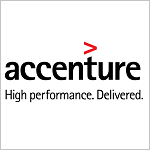Het thema ‘Circulaire Economie’ speelt voor steeds meer overheidsinstellingen, corporates en andere organisaties een belangrijkere rol.
Daarom nemen we maandelijks een kijkje in de keuken van een organisatie die voorop loopt op het gebied van Circulaire Economie, of delen we interessante rapporten en whitepapers. Deze keer een whitepaper van Peter Lacy, the Shanghai-based managing director in Accenture Strategy and leads Accenture’s work globally on Circular Economy.
In the digitally powered circular economy, business models focus on renewal, sharing and service. And the shortest path to sustainable, profitable growth isn’t a straight line.
 Businesses have traditionally exploited resources in a linear way, extracting raw materials to manufacture products for customers worldwide who then use and ultimately discard them. Today, however, critical nonrenewable inputs like metals, minerals and energy supplies are increasingly scarce, while the regenerative capacity of forests, land and oceans is under mounting pressure. As a result, these conventional straight-line business models can expose firms to unacceptable levels of risk, including wild price volatility.
Businesses have traditionally exploited resources in a linear way, extracting raw materials to manufacture products for customers worldwide who then use and ultimately discard them. Today, however, critical nonrenewable inputs like metals, minerals and energy supplies are increasingly scarce, while the regenerative capacity of forests, land and oceans is under mounting pressure. As a result, these conventional straight-line business models can expose firms to unacceptable levels of risk, including wild price volatility.
Digital technologies provide remote visibility and asset control, making them perfect enablers for three of the five circular economy business models: product as a service, sharing platform and product life extension. By enabling “dematerialization” (e.g., replacing physical newsprint with virtual online content or physical stores with direct-to-consumer retail) and changing how people interact with physical and virtual assets, digital technologies can transform value chains so that they no longer need additional physical resources to grow.
Why cheap, ubiquitous mobile access rules
The unique ability of mobile technology to be everywhere at increasingly affordable prices makes it an ideal enabler of the circular economy. Another way mobile technology supports the circular economy is by simplifying and improving the user experience by making remote interactions possible across customers, suppliers and goods themselves. Mobile apps combined with other digital technologies like machine-to-machine (M2M) connectivity and big data analytics can enable remote control, predictive maintenance, mobile payments and automated monitoring.
The rise of the machines
Two circular business models—the sharing platform and product as a service—will benefit from M2M connectivity, thus allowing organizations to substitute M2M asset management for costly, labor-intensive field service. That’s because the M2M approach lets manufacturers, energy producers and a host of other businesses manage their products remotely. It also reduces the risks associated with selling offerings that come with a performance guarantee, supporting the product as a service business model. Experience suggests that M2M connectivity can cut overall service and maintenance costs by as much as 30 percent.
Dematerializing in the cloud
Dematerialization describes the process of replacing a physical thing with a digital alternative. During the past few decades, dematerialization has put a variety of industries in intensive care, and cloud computing, along with mobile and social technologies, has played a key role in this disruption.
The cloud lets consumers shop or use services from anywhere at any time. Customers love it because it saves them time and money by making it possible to shop from home. Companies prefer it because they can more easily update content, and their capital and operating costs are lower than with traditional IT. What’s more, dematerialized assets don’t involve physical stock and thus have a better environmental profile.
Sharing the social revolution
Social media’s value has grown far beyond its original purpose of helping people stay in touch. The technology is evolving into a fundamentally new approach to sharing. It helps companies gauge customer sentiment quickly and cost-effectively by piggybacking on existing networks like Facebook. These new sharing platforms help firms build trust among consumers; they also enable users to make their own transactions and logistics arrangements without involving third parties.
Firms can rely on sharing platforms to identify and connect with interested user communities and gather ideas to strengthen the value propositions of their products. Social technologies also enable consumers to provide feedback, providing companies with a way to measure their ongoing competitive performance and offering an early warning system for problems that could affect customer experience.
By the numbers: Applying big data analytics
Companies in the circular economy rely on product use, not sales, to generate revenues, and they grow their businesses by identifying and capitalizing on latent demand. Accomplishing the latter can require major number-crunching horsepower, the kind that big data analytics offers. Circular business models that benefit from this capability include the circular supply chain, the sharing platform and product as a service. Manufacturers can use advanced analytics to gain insights into product use patterns and customer requirements, enabling them to bundle physical products with attractive add-on services. Creating models that predict consumer behavior based on historical data can allow firms to optimize product maintenance schedules, reducing cost, labor and resource requirements.
Read the full whitepaper here.
By: Peter Lacyis the Shanghai-based managing director in Accenture Strategy and leads Accenture’s work globally on Circular Economy.
Circulaire Economie Event
Het Circulaire Economie Event richt zich op een nieuwe visie, samenwerking en nieuwe financierings- en businessmodellen.
Het programma wordt mede mogelijk gemaakt door www.circulairondernemen.nl, de community voor ondernemers, organisaties en geïnteresseerden voor circulair ondernemen en circulaire economie.
Via het online platform en de daaraan gekoppelde projecten werken MVO Nederland, Circle Economy, De Groene Zaak, Click NL en het Groene Brein met ondersteuning van RVO.nl en het ministerie van Infrastructuur & Milieu in de coalitie RACE aan het versnellen van de ontwikkeling naar een circulaire economie.
Bekijk de website van het Circulaire Economie Event voor meer informatie.


Leave a reply